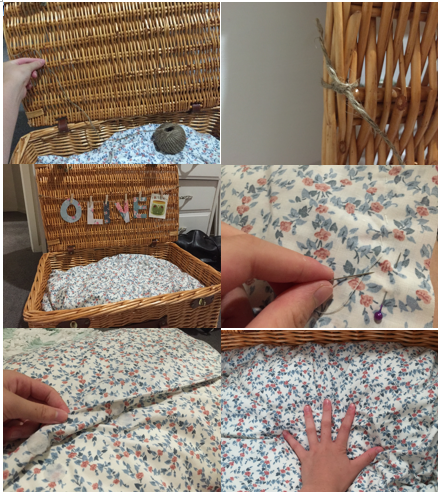Scholarship applications consumed most of my life last year and became a bit of an expert on how to sell yourself and put your best foot forward. I thought I would share some of my top tips for application writing and interviews; many of these have come in handy when applying for university clubs as well!
After applying for over 30 scholarships last year, gaining three University scholarships and having a number of terrifying interviews at corporate firms, I thought I would give your my secrets on the DOs and DON'Ts of pitching yourself.
DO:
- Format your CV so it is easy to read and eye-catching. I listed simple key attributes in a left-hand column and listed extra details and experiences in the body of my CV.
- Section off information that differentiates yourself, for example, I was heavily involved in volunteering and dedicated a section especially to listing the organizations I helped. I had a separate section for leadership roles as well.
- Use your resources! Hold regular meetings with your careers advisors, ask friends, family and teachers to look over your applications to make sure everything is perfect!
- Adapt your CV and answers to emphasise certain aspects that are important to where you are applying.
- Be genuine. Discuss your strong points, discuss your weaknesses (if asked in the application) and always include examples to back up anything you say.
- Link your answers back to the organisation or club specifically. For example, in one application I wrote "I have a strong willingness to learn and bring quite a fresh perspective to various new situations. I am also great at brainstorming ideas and keep up with the common trends. This means especially within the events subcommittee I can recognise what is more likely to attract the most people. I have very practical skills and the ability within a team to recognise everyone's benefits and bring them together to further a common goal."
DON'T:
- Be too detailed with descriptions of all your past activities. Most applications are just an overview of you as a person, and more detail of particular experiences can be expressed during interviews.
- Exceed the word or character count.
- Use a generic CV template or send the same CV to every application.
- Show off or be cocky in your application, rather, be honest and humble.
- Dress professionally and greet them professionally. Always try to remember the interviewers' name and use it! Most of the time there will be more than one interviewer so share eye contact and interact with both of them even if one is simply a scribe.
- If it is an external organisation or fund (not from a university), do your research on their values, what they actually do as it is not uncommon to be asked what you know about them.
- Always prepare genuine questions you would like to ask them to include at the end of the interview when they ask "so do you have any questions you would like to ask us?" This shows you've actually thought about your application and how you fit into their organisation.
- BANTER/ Building rapport is KEY: When you get into the interview maintain a balance between professionalism and building some good banter back and forth. Sometimes I like to ask questions about their own personal experiences if they ask an interesting question. Always try and sense the interviewer's personality and fit your vibe to theirs so they like you as there's always an element of subjectivity in interviews. I've cracked so many jokes with interviewers and once even described myself as an 80 year old trapped in an 18 year old's body; these can make your interview stand out amongst others!
- Introductions and Conclusions for answers are a great tool to practice. If you're unsure of how to start an answer and need a few minutes start with "Well that's actually a really good question...". If you feel like you're going on a tangent bring your answer back to the original question asked.
- Prepare plenty of situations and challenging experiences before your interview and practice these aloud. From my experiences, there are plenty of challenging questions that will ask you to refer to specific situations. Remember what you have discussed in the interview and in your application as they will often bring up details you have talked about e.g. Discuss a time you found a task challenging and how you overcame this? Did you encounter any problems when you were involved in ... Even with generic answers it is better to back up your statements about your qualities with personal experiences that prove you possess these.
- Be up to date with current news and what is going on in the world. Be passionate about certain issues because they will often ask what you've been interested in recently in the world.
(You can pick up my favourite #girlboss networking and interview heels here.)
All in all, be honest, be genuine and make your personality shine whether it be in an application or in person during an interview. I strongly encourage you to step up and apply for as many clubs, scholarships and experiences as possible as these can help you meet some awesome friends or even just to gain more interview experiences to build on your skills.
I hope these tips helped and make sure you leave a comment or flick me a message if you would like to gain more advice regarding applications.
Best of luck,







































